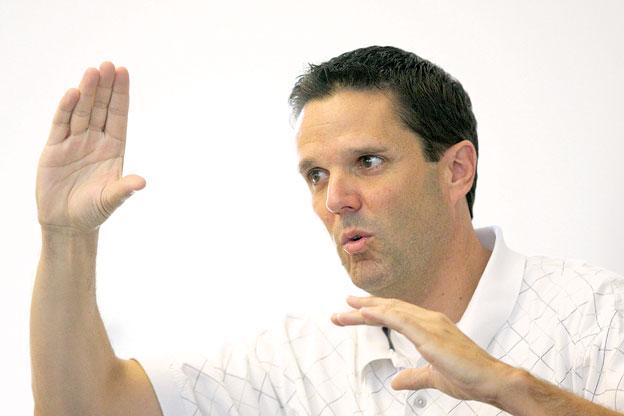 City smelled trouble early and prepared for rough seas
City smelled trouble early and prepared for rough seas
By Phil Riske, Managing Editor, Rose Law Group Reporter
A statewide poll (+-4 percent margin of error) in May showed the number of voters who have confidence in city and town government to be fiscally responsible jumped 11 percentage points over a similar poll taken in 2011, beating 2-1 the results for county and state government.
The poll, commissioned by the League of Arizona Cities and Towns, also found 68 percent of those polled said cities and towns did a “good” or “excellent” job maintaining critical services during the economic downturn.
A majority of those surveyed by Tucson pollster Margaret Kenski at the time felt the Arizona economy was either on the path to recovery or at a neutral point, an improvement from the response to the same question a year ago. Regarding the overall direction of the state, more than 41% felt it was headed in the right direction, while about 48% said it was on the wrong track.
In a majority of the nation’s 19,000 municipalities—urban and rural, big and small—stagnant property tax revenues, less aid from states and rising costs forced less dramatic actions such as bankruptcy, but still difficult steps.
“For municipalities, these have been demanding times with challenges unseen for a generation or more, Surprise City Manager Chris Hillman told Rose Law Group Reporter.

As early as 2009, Hillman said, the Surprise began reducing staff because the slowdown diminished workloads in some areas and because of sharply reduced revenues.
“For example, our construction sales tax revenues fell from more than $21 million in FY07 to just $3.8 million in FY11,” he said. “The number of homes under construction, based on permits issued, fell from more than 7,000 in 2007 to just a few hundred a few years later.
At the same time Surprise began to come to grips with financial management issues that needed fixing, specifically the way the city had managed impact fee funds in the past, Hillman said.
“To bring these internal funds into balance, we needed to cut millions from the budget this spring. This meant a round of painful layoffs and other reductions, plus draining our reserve fund to near zero. These actions, and a qualified audit opinion related to the discovery of these issues, resulted in a downgrade of our credit ratings.”
Hillman turned to the good news.
“We saw opportunity at several levels, he said.
- “One is an opportunity to review our organization and our budget as never before, to find efficiencies and streamline processes in a systematic effort to deliver the best bang for the buck. That includes shifting to a budgeting plan in which every year, department directors bring highly detailed expenditure reports forward. We look line by line at each item and ask the hard questions: ‘Did you use this money as you thought you would? If you think you need it next year, explain why.’ This process helped trim more than $4 million from the FY12 budget and generated the most detailed and transparent budget process our Council says they have ever seen. Council received more than 1,000 pages of information on city expenditures for their review and authorization.
- “Second, it gave us an opportunity to build stronger connections within the community. We took our ongoing financial challenges, both recession-caused and as the result of past decisions, directly to the people in the form of public meetings, speaking before clubs and HOA groups, extensive media briefings, and aggressive electronic communications such as a special section on our web site. Anyone could see exactly what was happening, and everyone had abundant opportunity to ask questions or make suggestions. As the FY13 budget came together in April and May, Council held extraordinary workshop session for several hours each Tuesday, open to the public and on live TV, in which they discussed the proposed budget and plans for addressing our financial challenges in great detail.
- “Third, it gave us the opportunity to look down the road further than just the next fiscal year. The council set a firm direction: the reserves must be replenished within two years, without raising taxes or fees, and without impacting vital public services. We created a plan whereby reducing expenses and holding those reductions over a two year period, when combined with anticipated improvements in revenues, would result in revenues exceeding expenses by approximately $14 million, which we will direct to replenishing our reserves. In the future, we will look much more closely at budgeting with a longer view in mind.
- “Lastly, we are generating a culture in city government of ever tighter focus on efficiencies and longer range financial planning. We are also examining our organizational values so that as we move forward we have a defined set of beliefs we can reference and share. We aren’t at the end of the road yet, but we are well into the journey and our progress has been excellent.”
Despite the painful steps that had to be taken in Surprise, more than nine out of 10 citizens are extremely satisfied living in Surprise.
Hillman said the proof is in the results of the National Citizen Survey taken in April after financial and budget difficulties were generally known.
“Our residents indicated a high level of satisfaction with their lives in Surprise,” he said. Ninety-three percent said they would recommend Surprise as place to live, and a healthy majority believes the city is heading in the right direction. In fact, that percentage is even higher than it was when the survey was taken [in 2010].”
Hillman concluded, saying the key to the city’s success if open government and its public esteem.
“The lesson is that with strong leadership from a mayor and council who have the respect of the community, combined with an honest commitment to open communication and a resolve to tackle tough problems by working together, our city can operate more effectively and our community can feel more involved than ever,” he said.
Surprise’s recovery specifics:
· Southwest Products is constructing a 165,000 sf manufacturing and distribution facility this fall, a $10 million investment adding 120-160 new jobs in its diesel engine business.
· Gestamp Solar Steel accelerated construction of phases two and three of its manufacturing and U.S. headquarters facilities this summer, adding 80 new jobs and bringing Spain-based Gestamp’s Surprise presence to 140,000 sf. Gestamp announced its arrival in 2011.
· Rio Glass opened Phase I in the summer of 2011. Phase I set up a U.S. headquarters and solar glass manufacturing capacity for this European company, creating more than 200 construction jobs, more than 100 new solar plant jobs and $50 million in capital investment . Rio announced in 2010.
· Intrepid Tools is bringing millions in capital investment and 60 new full-and-part-time jobs in automotive, aerospace and aircraft engines manufacturing this year.
· Brentwood Industries is manufacturing filter media at a 50,000 square foot Phase 1 facility, creating dozens of full and part-time jobs.
· New retail is a also big part of the story, such as the Dodge and Nissan dealerships opening at Prasada this year and the new Uptown Alley, a 60,000 sf entertainment center, with two dozen bowling alleys, laser tag, rock climbing, even a full service restaurant.












